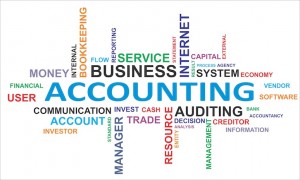
Over the past four to five years cloud accounting has been universally adopted by all the major and minor accounting firms. There are so many practical reasons for keeping business in the cloud as I have discussed in previous articles. In the beginning, when accounting software began its transition into the cloud, most thought it would be a limo ride to ease and affordability. However, some of the simple basics turned out to be hurdles that needed to be overcome. Cloud implementation presented several fundamental challenges that weren’t being met, such as journal entries and reconciliations. These basics have long since been cleared up, and are no longer a consideration. But it just goes to show you that even the simple things can take more attention that initially realized.
 What do you think of as the oldest occupation on earth? Does your mind immediately go to Rudyard Kipling’s coined reference as the oldest profession in the world – prostitution? Maybe so, but who accounted for the trade? If there was an exchange of goods, then there had to be an accounting in one form or another, albeit very basic. Accounting has simply been a practical matter of keeping track of exchanges for as long as there were things to trade.
What do you think of as the oldest occupation on earth? Does your mind immediately go to Rudyard Kipling’s coined reference as the oldest profession in the world – prostitution? Maybe so, but who accounted for the trade? If there was an exchange of goods, then there had to be an accounting in one form or another, albeit very basic. Accounting has simply been a practical matter of keeping track of exchanges for as long as there were things to trade. How can an industry with such strong parameters grow creatively? At first it may look as though there isn’t any room to stretch the growth opportunities. Catering to the public, but staying within strict designated guidelines is sometimes like a high wire act. Legality is of the utmost importance, and customer care ranks right up there with it.
How can an industry with such strong parameters grow creatively? At first it may look as though there isn’t any room to stretch the growth opportunities. Catering to the public, but staying within strict designated guidelines is sometimes like a high wire act. Legality is of the utmost importance, and customer care ranks right up there with it. Within the accounting industry it’s critical that practitioners stay current on developing trends. It’s not always easy, but consider it a part of the job. It’s a necessity to be sure you are making use of every advantage and opportunity that software technology offers.
Within the accounting industry it’s critical that practitioners stay current on developing trends. It’s not always easy, but consider it a part of the job. It’s a necessity to be sure you are making use of every advantage and opportunity that software technology offers. Accurate accounting records for a small business are a must. Not just so your business can file income taxes either. Good records let you know at any time what your business cash flow and profit situation is. Accounting software for small businesses is an essential tool most small businesses must use to keep on top of the business.
Accurate accounting records for a small business are a must. Not just so your business can file income taxes either. Good records let you know at any time what your business cash flow and profit situation is. Accounting software for small businesses is an essential tool most small businesses must use to keep on top of the business.